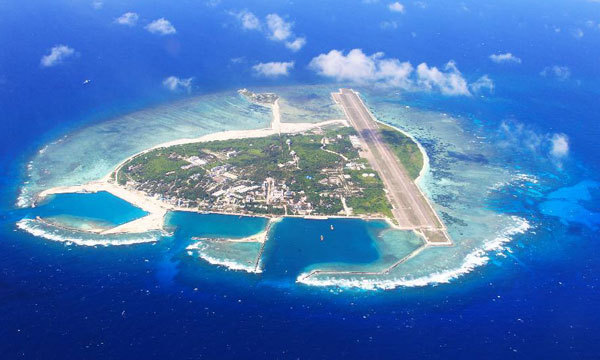Constructive communication necessary on South China Sea disputes
- By Shen Dingli
 0 Comment(s)
0 Comment(s) Print
Print E-mail People's Daily, October 10, 2015
E-mail People's Daily, October 10, 2015

Chinese President Xi Jinping said that China and the United States have "a lot of common interests" on the issue of the South China Sea during his recent visit to the U.S.
The two countries support the freedom of navigation and overflight that countries enjoy according to international law and the management of differences through dialogue, he added.
He also noted that both support the comprehensive and effective implementation of the Declaration on the Conduct of Parties in the South China Sea and an earlier completion of negotiations on the Code of Conduct in the South China Sea based on consensus.
It is indeed necessary for the two sides to maintain constructive communication on South China Sea disputes.
However, Admiral Scott Swift, commander of the U.S. Pacific Fleet, said in Australia that Beijing would not get away with its island-building and maritime coercion in Asia.
This is not the first time that the U.S. military has made the not so "constructive" remarks. What China has done is reasonable and valid, and it is not the first one to carry out construction on its own islands and reefs and will not be the last one. China will never accept the title "maritime threat". Its construction activities in South China Sea haven't caused troubles for the sailing of other counties' ships.
Swift has also warned that if China's bullying behavior at sea is not confronted, it will spread to land and become a "friction point". But in fact it is the U.S. navy that came to Hawaii in 1893 and later annexed the island; it is the U.S. navy that sent its troops to Taiwan in 1950; it is also the U.S. that waged the Iraq war in 2003.
China will resolutely defend its legitimate interests at sea, but will never follow the U.S. to seek hegemony and will never create a "maritime threat". China and the U.S. should maintain constructive communication to guard against real "maritime threats".





